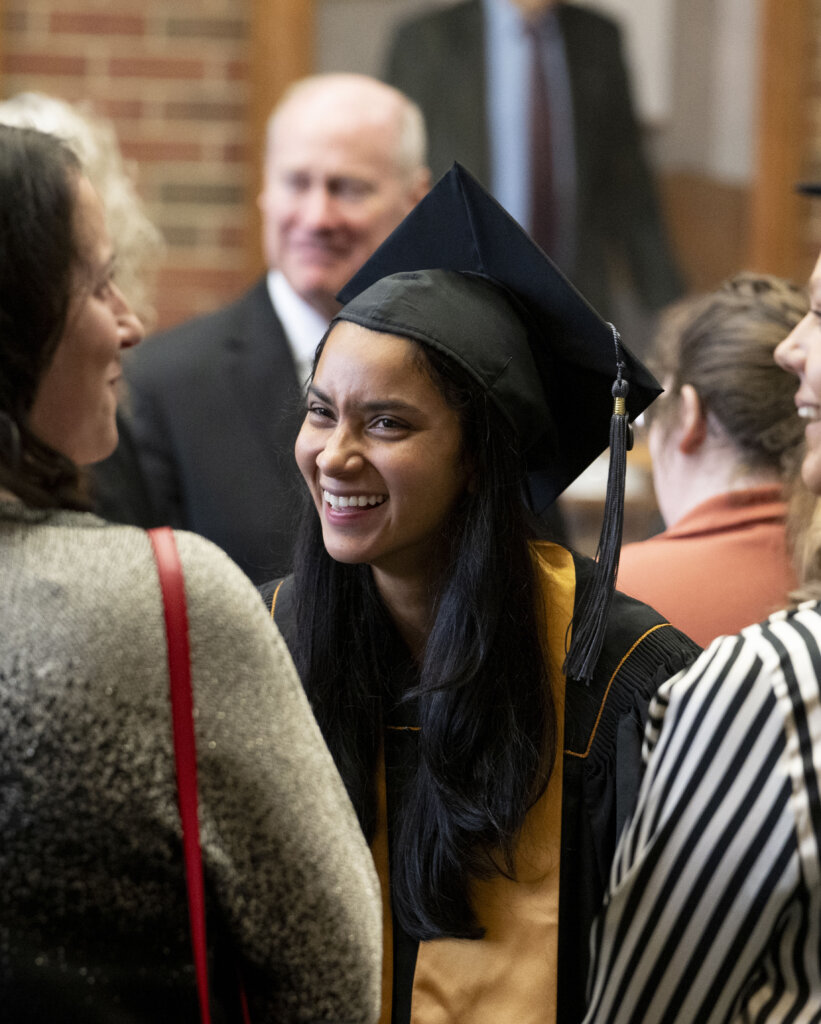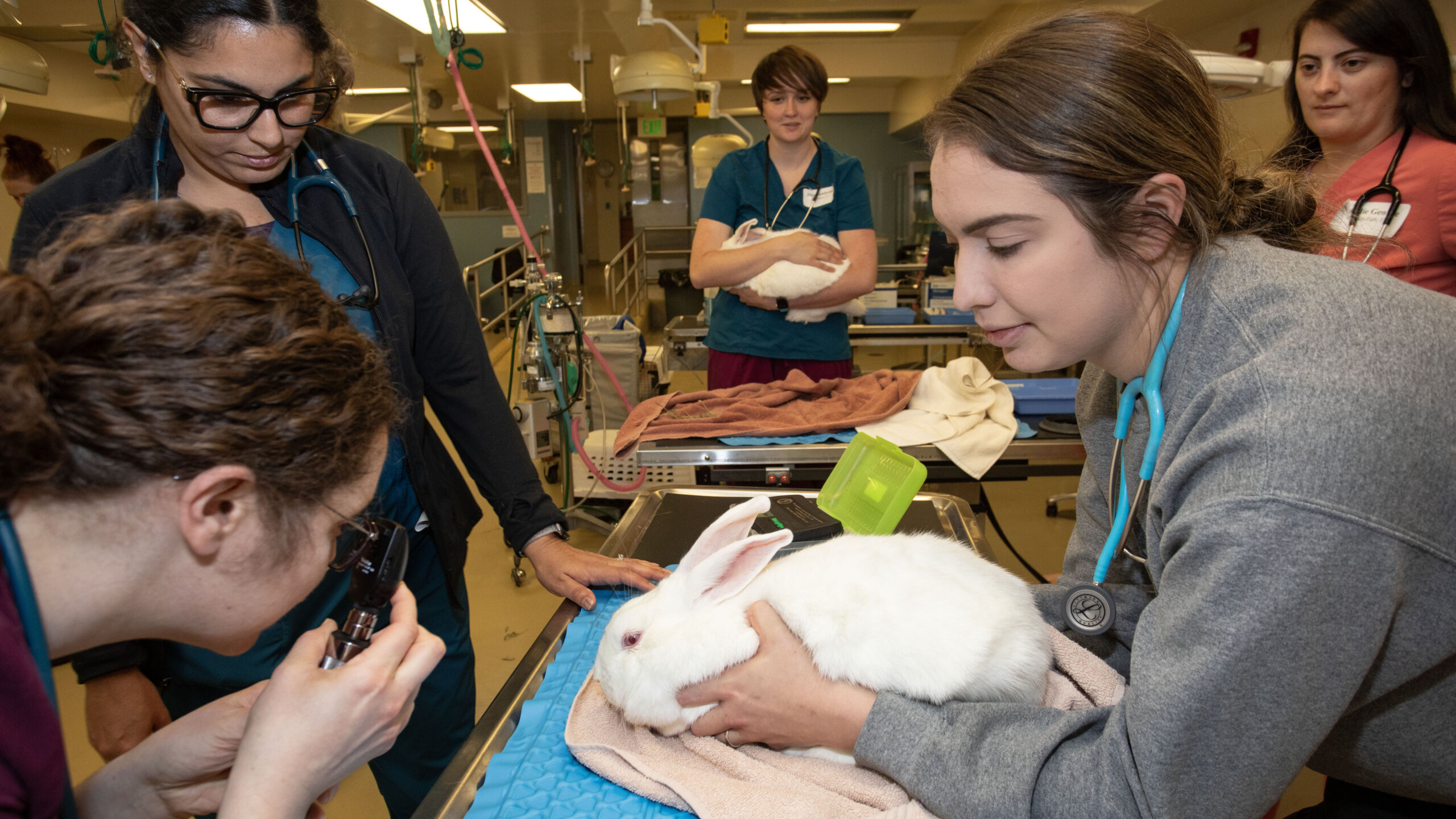Already Purdue’s largest online program, the College of Veterinary Medicine’s Veterinary Nursing Distance Learning program is partnering with National Veterinary Associates General Practice to offer the VNDL program to technicians at NVA’s more than 1,000 general practice veterinary hospitals.
Purdue’s VNDL program makes a partner rate available that reduces the per-credit-hour cost and yields a considerable savings for a curriculum spanning 70 credit hours, said Josh Clark, the VNDL program’s assistant director. The partner rate is available to any veterinary practice that has at least two staff members who enroll in the VNDL program and take a minimum of four credit hours every semester, with the practice covering at least a portion of the tuition cost.
The VNDL program can allow veterinary practices both large and small to take a “grow-your-own” approach and upskill existing veterinary assistants and other employees, Clark said.
“Veterinary technicians are crucial to our teams, only with their support can our doctors deliver the best possible care,” said Dr. Sandra Faeh, chief veterinary officer, NVA General Practice. “We want our technicians to have long and fulfilling careers with us. That’s why we continually strive to offer more career development options and assist with the cost of continuing education.”
As NVA seeks to deliver more growth opportunities for its people, Purdue’s College of Veterinary Medicine was a natural partner given its breadth of curriculum and flexible learning options.
“Our partnership with Purdue ensures our technicians can expand their skills and knowledge,” said Janine Miletic, president, NVA General Practice. “With Purdue’s strong reputation and dedication to advancing the industry, their programming helps us further our mission to give every pet — and their families — the best life.”
The VNDL program is among the oldest online programs offered by Purdue — and currently the one that has the largest enrollment, with a record 780 registered students for fall 2024. The program’s goal is to grow 10% year over year. But over the last three semesters, it has seen growth of 40% in spring 2024 from spring 2023, 50% in summer 2024 from summer 2023 and 44% in fall 2024 from fall 2023, Clark said.
Educated veterinary nursing professionals are in short supply. Demand for veterinary technicians is projected to grow by 19% through 2033, faster than the average for all occupations, according to the U.S. Bureau of Labor Statistics.
“A lot of veterinary practices are struggling to attract credentialed veterinary technicians, or struggling to find them, partly because there are not enough out there,” Clark said.
The VNDL program’s growth has necessitated an increase in instructors, with two new instructors joining in August to help manage the growing student load. Plans are to add two more in the coming months, further reinforcing the program’s capacity to accommodate rising demand.
Meanwhile, student retention rates were 76% from fall 2023 to fall 2024, also the highest ever, and the program’s pass rate for the Veterinary Technician National Exam (VTNE) also remains high at 89.6%, well above the national average of 65%.

Despite its success, the program isn’t standing still. It is close to concluding a significant overhaul of its 27 didactic courses, with the last two set to be completed in 2025.
Next up is a refining of the program’s plan of study, consolidating redundant material, and identifying ways to reduce course load without compromising education quality. Approved by the faculty in December, the revised curriculum will reduce the total credit requirement from 70 to 64 credit hours and trim the minimum completion time from nine to eight consecutive semesters. This adjustment could allow students to complete their studies in closer to two and a half years, aligning more closely with the timeline of a typical associate’s degree program and responding to student requests for a shorter pathway.
In addition, Purdue’s VNDL program recently underwent a successful accreditation visit from the American Veterinary Medical Association’s Committee on Veterinary Technician Education and Activities (AVMA CVTEA). Occurring every six years, the accreditation process ensures that the program meets or exceeds educational standards. Clark said the committee members offered positive feedback during a September site visit and have approved continued full accreditation for the program.
For more information about the Purdue Veterinary Nursing Distance Learning program, visit the program’s website. Veterinary practices interested in the VNDL program’s partner rate can contact Purdue’s Veterinary Nursing Office at vetnurse@purdue.edu or 765-496-6579.

